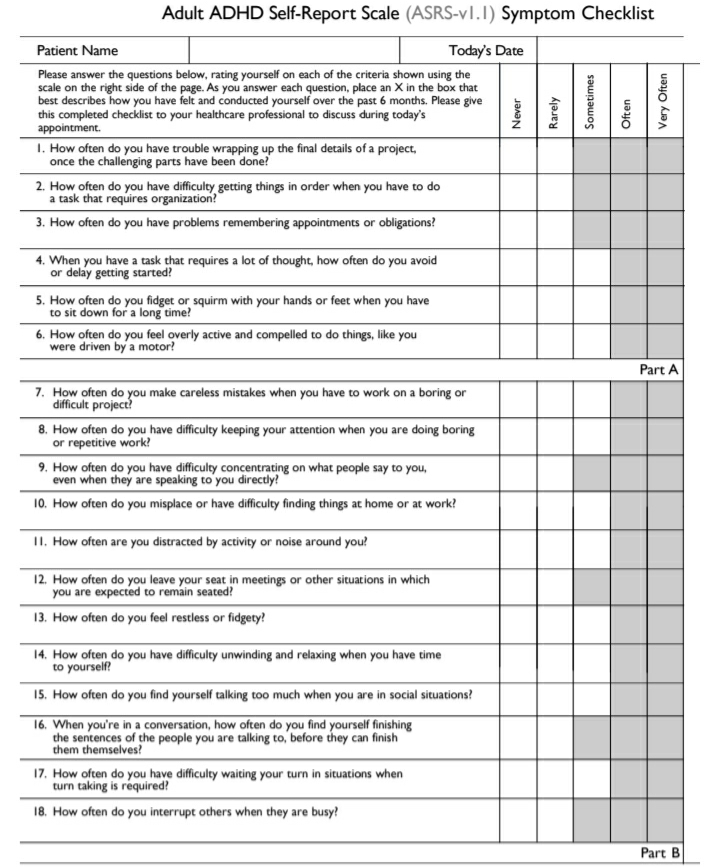Attention deficit hyperactivity disorder or ADHD is a common disorder that affects many individuals worldwide. This disorder is characterized by inattention, hyperactivity, and impulsivity, which can have a significant impact on a person’s life. ADHD is often diagnosed in childhood, but many individuals also struggle with symptoms well into adulthood.
Adult ADHD Symptoms Checklist
 If you are an adult who suspects you may have ADHD, it’s important to seek help from a healthcare professional. Here is a checklist of common symptoms that adults with ADHD may experience:
If you are an adult who suspects you may have ADHD, it’s important to seek help from a healthcare professional. Here is a checklist of common symptoms that adults with ADHD may experience:
- Difficulty paying attention or concentrating
- Forgetfulness
- Poor listening skills
- Lack of organization and planning
- Difficulty completing tasks
- Easily distracted by external stimuli
- Frequently losing or misplacing things
- Restlessness or hyperactivity
- Impulsivity
- Difficulty waiting for one’s turn
If you identify with many of these symptoms, it’s important to seek professional help. Many individuals with ADHD benefit from a combination of medication, therapy, and lifestyle changes to manage their symptoms.
Types of ADHD
ADHD is often divided into three subtypes, which are based on the symptoms a person experiences:
- Inattentive type: This subtype is characterized by symptoms of inattention, such as difficulty paying attention, forgetfulness, and poor listening skills.
- Hyperactive-impulsive type: This subtype is characterized by symptoms of hyperactivity and impulsivity, such as restlessness, difficulty waiting for one’s turn, and impulsive behavior.
- Combined type: This subtype is the most common and is characterized by symptoms of both inattention and hyperactivity-impulsivity.
It’s important to note that each individual with ADHD may experience symptoms differently, and symptoms may also change over time. Therefore, it’s important to work with a healthcare professional to develop an individualized treatment plan.
Treatment for Adult ADHD
There is no cure for ADHD, but there are many treatments available to manage symptoms. Here are some common treatments that may be recommended:
- Medication: Many individuals with ADHD benefit from medication, such as stimulants or non-stimulants, which can help improve attention and reduce hyperactivity and impulsivity.
- Therapy: Therapy, such as cognitive-behavioral therapy or psychotherapy, can help individuals with ADHD learn strategies to manage their symptoms and improve their overall quality of life.
- Lifestyle changes: Lifestyle changes, such as regular exercise, a healthy diet, and good sleep habits, can also help manage symptoms of ADHD.
If you suspect you may have ADHD, it’s important to seek professional help to receive an accurate diagnosis and develop an effective treatment plan.
Final Thoughts
ADHD is a common disorder that can have a significant impact on an individual’s life. However, with proper treatment and management, individuals with ADHD can lead successful and fulfilling lives. If you suspect you may have ADHD, don’t hesitate to seek help from a healthcare professional. Together, you can develop a plan to manage your symptoms and improve your overall quality of life.